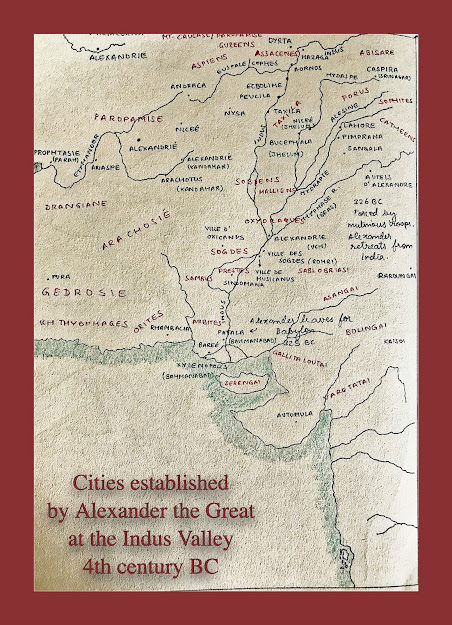The Indus river valley is blessed with historical treasures right from the starting of the Indus Valley Civilization of Antiquity Age. Along with the historical richness of this civilization, there was another crucial event in world history that occurred along the 5 rivers of Punjab and Indus, near present-day India-Pakistan border. The event is famously known as the defeat of Alexander the Great.
After overthrowing the Persian king Darius III, Alexander marched towards the supposedly believed 'end of the world' beyond the river Indus. At that time, Nanda Dynasty dominated the northern Indian subcontinent and, according to an ancient Greek historian Plutarch, the Nanda army was waiting with "eighty thousand horsemen, two hundred thousand footmen, eight thousand chariots, and six thousand fighting elephants". The Macedonian army wasn't prepared for this. And on top of this, they have been battling for a continuous 8 years.
The Battle of Hydaspes (ancient name for Jhelum river) was the most fearsome and brutal battle fought by Alexander's army. The battle was fought against King Porus (Puru / Purushottam etc.) of Paurava Kingdom that went to such an extent where Alexander's army suffered maximum damage unlike to what they had fought in the past. While Porus lost the battle and ultimately the kingdom was annexed to Alexander's territory, the latter respected the valor and courage of the former and hence granted him as the governor of the province. And still, after Hydaspes, Alexander commanded his army to march southwards.
Since the men were mentally and physically exhausted at this point, they mutinied against further marching and finally in 325 BC, the army had to retreat from Patala (Bahmanabad, near Hyderabad, Pakistan). And just after the departure of Alexander back to Babylon (where he died), Chandragupta Maurya established the Maurya Empire on the Indian subcontinent.
An alternate version of history which has been popularized in India is that Alexander got defeated at Hydaspes. There are multiple proofs to disprove this and the most obvious one is, if he was actually defeated, how did he marched southwards and retreated from the Mouths of Indus? The Alexander-Porus battle was gruesome indeed and one can also say that it was near-defeat for Alexander, but a peace treaty was signed at the end thus annexing the kingdom and declaring victory for Alexander. Moreover, Alexander established cities like Nicea (or Niceé) and Bucephala (possible sites near Jhelum, Pakistan) continuing the tradition of establishing cities after every battle victory.
The following map shows the various cities and townships having Greek names (except Lahore, for a geographical referencing purpose) dating 4th century BC. All of these towns are in present-day Pakistan, Afghanistan and Tajikistan.










0 Comments